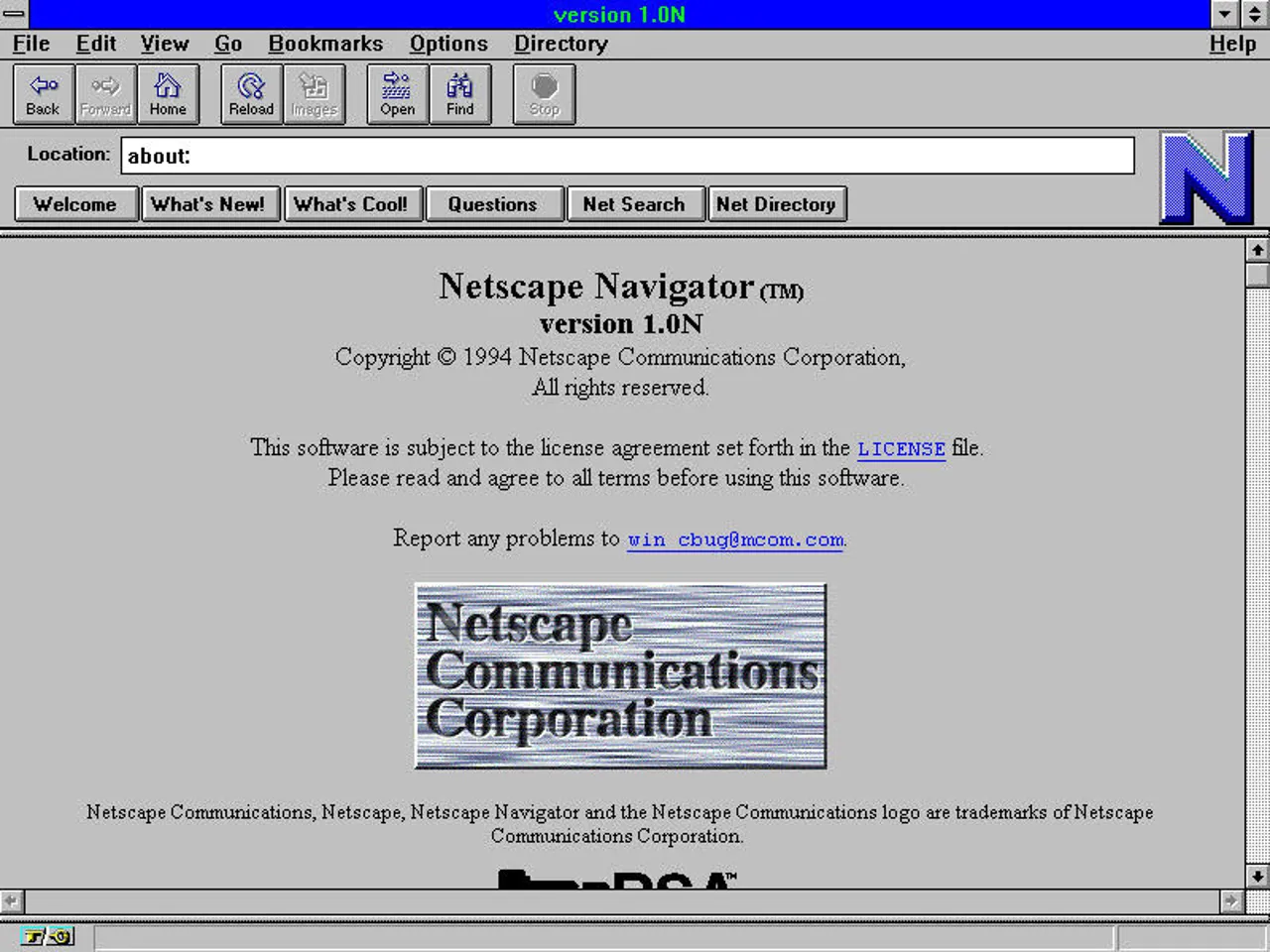
Netscape’s Enduring Legacy: 30 Years of Shaping the Web, Open Source, and Business
In the mid-1990s, Netscape Navigator emerged as a pioneering web browser, playing a pivotal role in popularizing the World Wide Web. Although Netscape’s prominence has since faded, its influence persists in today’s internet landscape, open-source initiatives, and business practices.
The Rise and Fall of Netscape Navigator
Introduced in 1994 by Netscape Communications Corporation, Netscape Navigator quickly became the browser of choice for many internet users. Its user-friendly interface and advanced features set it apart from competitors, capturing a significant share of the browser market. However, the subsequent “browser wars” with Microsoft’s Internet Explorer led to a decline in Netscape’s dominance. Microsoft’s strategy of bundling Internet Explorer with its Windows operating system eroded Netscape’s market share, culminating in its eventual discontinuation in 2008.

Netscape’s Open Source Contribution: The Birth of Mozilla
In a strategic move to counter Microsoft’s growing influence, Netscape open-sourced its browser code in 1998, leading to the creation of the Mozilla Project. This initiative aimed to foster community-driven development and innovation. The Mozilla Application Suite, which emerged from this project, laid the foundation for future browsers like Mozilla Firefox. Firefox, known for its speed, security, and adherence to web standards, has become one of the most popular web browsers globally, embodying Netscape’s enduring impact on internet browsing.
Influence on Open Source Movement
Netscape’s decision to release its source code was a significant milestone in the open-source movement. It demonstrated that large-scale, commercially developed software could thrive under an open-source model, encouraging other companies to consider similar approaches. This move not only invigorated the open-source community but also led to the development of numerous applications and tools that form the backbone of today’s internet infrastructure.
Business Innovations and the Dot-Com Boom
Netscape’s initial public offering (IPO) in 1995 was a watershed moment in Silicon Valley history. The company’s stock price soared on its first day of trading, signaling the start of the dot-com boom. This event, often referred to as the “Netscape moment,” highlighted the immense potential of internet-based businesses and inspired a wave of investment in technology startups. Netscape’s success showcased the viability of web-based services and set the stage for the internet-driven economy that followed.
Technological Contributions: SSL and JavaScript
Beyond its browser, Netscape made significant technological contributions that have become integral to the web. The company developed Secure Sockets Layer (SSL) protocol, which established a standard method for encrypting web traffic, enabling secure online transactions and communications. Additionally, Netscape introduced JavaScript, a scripting language that has become a cornerstone of web development, allowing for dynamic and interactive user experiences.
Legacy in Modern Browsers
The legacy of Netscape is evident in modern web browsers. Mozilla Firefox, a direct descendant of the Mozilla Project initiated by Netscape, continues to be a major player in the browser market. Furthermore, the open-source principles and technologies championed by Netscape have influenced the development of other browsers, fostering a more open and collaborative internet ecosystem.
Conclusion
While Netscape as a company may no longer exist, its impact on the internet, open-source development, and business practices remains profound. By pioneering web technologies, embracing open-source principles, and igniting the dot-com boom, Netscape has left an indelible mark on the digital world, shaping the way we interact with the internet today.